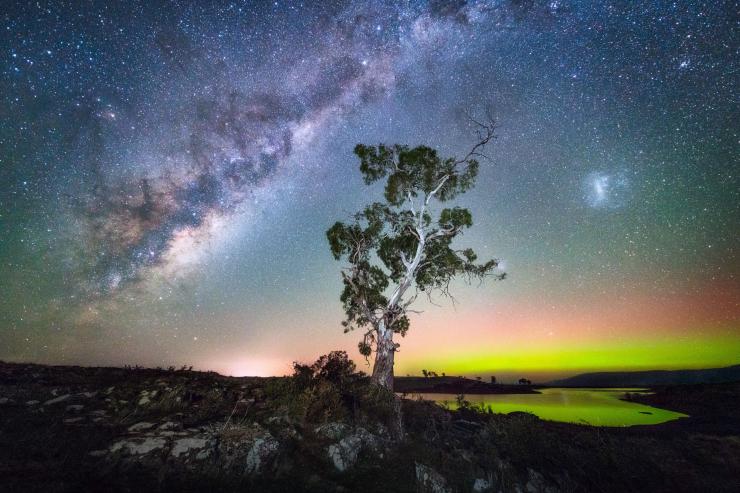Daylight saving is not observed in Queensland. The time zone in Queensland is Australian Eastern Standard Time (AEST), UTC +10.

Weather on the Gold Coast
Find some information on temperature, rainfall and seasonal activities to help plan your Gold Coast holiday.
What is the weather like on the Gold Coast?
Queensland's Gold Coast has a sub-tropical climate with around 300 days of sunshine per year. Plan ahead with this information on temperature and rainfall – and don’t forget to pack the sunscreen.
Summer (December – February)
During summer the average temperature is a pleasant 21 - 28.4°C (69.8 - 83.1°F). February is the wettest month (Receiving 184mm/7.2 inches on average), and short, tropical storms are common in the late afternoon and early evening. During summer humidity is high, roughly 69 - 75 per cent, but this is offset by cool sea breezes.
Autumn (March – May)
In autumn, sunny days are followed by cooler nights with average temperatures between 18 - 25.7°C (64.4 - 78.2°F). Water temperatures are still high enough to swim (25.2°C / 77.3°F) and it is generally less rainy than the summer months.
Winter (June – August)
Winter on the Gold Coast is generally sunny and dry with average temperatures between 12.5 - 21.5°C (54.5 - 70.7°F). The Hinterland is slightly cooler with maximum winter temperatures around 16°C (60.8°F). Clear skies and dry air average cool nights.
Spring (September – November)
In spring, sunny days are followed by mild tropical evenings and average temperatures range from 16.9 - 25.4°C (62.4 - 77.7°F). Days are dry but can be windy, especially during September.
Frequently asked questions about the weather on the Gold Coast
Seasonal weather on the Gold Coast
SUMMER
| Weather Categories | Dec | Jan | Feb |
|---|---|---|---|
| 27.7 82 | 28.6 83 | 28.5 83 | |
| 20.4 69 | 21.8 71 | 21.8 71 | |
| 142.6 | 131 | 177 | |
| 9.3 | 9.1 | 10.3 |
AUTUMN
| Weather Categories | Mar | Apr | May |
|---|---|---|---|
| 27.7 82 | 25.7 78 | 23.4 74 | |
| 20.7 69 | 18.3 65 | 15.3 60 | |
| 103.7 | 123.3 | 117.2 | |
| 11.1 | 9.2 | 8.7 |
WINTER
| Weather Categories | Jun | Jul | Aug |
|---|---|---|---|
| 21.3 70 | 21.1 70 | 21.8 71 | |
| 13.1 56 | 12 54 | 12.4 54 | |
| 115.9 | 46.6 | 60 | |
| 7.1 | 4.8 | 4.5 |
SPRING
| Weather Categories | Sep | Oct | Nov |
|---|---|---|---|
| 23.8 75 | 25.2 77 | 26.6 80 | |
| 14.8 59 | 16.9 62 | 18.9 66 | |
| 43.8 | 100.3 | 125 | |
| 5.3 | 6.7 | 8.8 |

































































































































